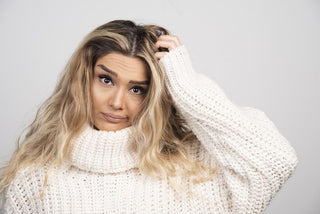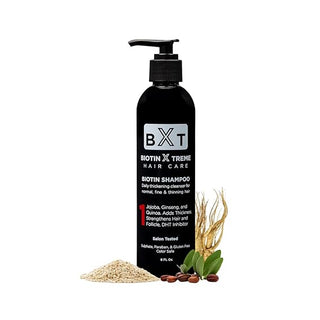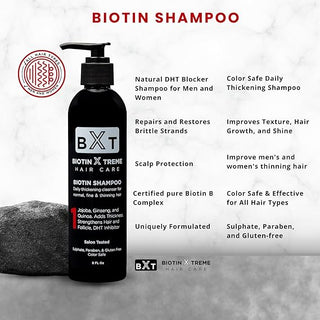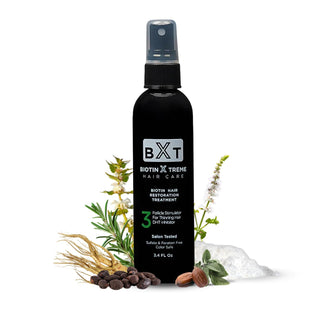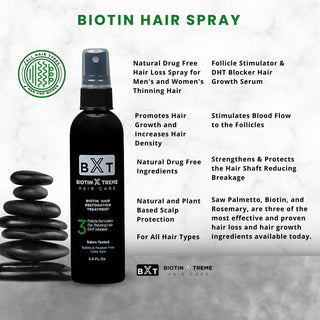There is a definite correlation between cold weather and hair loss, even if freezing temperatures by themselves will not make hair thin or fall out. We frequently wear tight-fitting hats in the winter to stay warm and protected, but this can tug on hair, weakening it and making it fall out. Traction alopecia can consequently happen. Everyone should generally be more conscious of their wintertime routines since there may be a link to hair loss.
Many individuals who spend plenty of time outside in the cold suffer from dry scalps, which can also result in hair loss. Lack of moisture also makes hair brittle, and one may notice that breakage happens frequently. The hair may also get significantly thinner over time.
How can I prevent hair loss in winter?
Those of you with fine hair should exercise extra caution throughout the winter months, particularly about hair loss. Since you are already making every effort to give your hair a bit more volume, winter naturally makes your hair appear lifeless, flat, and drab. For this reason, you must take every precaution to prevent winter from damaging your hair.
Nothing beats giving your hair a nice oil massage in cold weather. Oil massages are not only incredibly soothing but also an excellent strategy to stop hair loss in the winter. Because they give your hair and scalp the vitamins and fatty acids they need to withstand the winter, oils like olive, jojoba and almond oil are excellent for your hair. Another option is to use jojoba oil, which is an excellent moisturizer for hair.
The correct vitamins, like biotin b7, may work wonders for your hair, strengthening it to the point where it can withstand the dry, chilly air of winter.
Does winter hair loss grow back?
Hair loss in winter is mainly because of outside dry air that sucks out the moisture from the scalp. A dry scalp causes dry hair and dandruff resulting in breakage, hair damage, and hair loss.
The season of hair fall is temporary and one needs to stay calm. The growth of hair depends on the seasonal cycle and new hair growth is seen around the middle of spring.
Common Causes of Winter Hair Loss
Though losing hair is common throughout the year, one can see more hair loss in winter. As already mentioned, hair loss is mainly due to changing seasons and it is cyclical. In winter, the air is drier and they dehydrate the scalp causing dry hair. This results in thinning, breakage, and dandruff that causes the scalp to become itchy. All these conditions result in hair fall.
How to Avoid Hair Loss in Cold Weather?
• Moisturize
It seems logical that cold weather dries out your hair. Therefore, you must hydrate your hair to revitalize it. Isn't that all there is to it? Massage yourself with heated oil.
Make time once or twice a week to give your hair a deep condition. Put a hair mask on. Use an anti-dandruff product in addition to this to maintain a healthy scalp and control your dandruff. Inhaling steam causes hair follicles to expand, smooth, and glossy. Visit a hair salon once a month or more. Try not to worry too much! Using Biotin conditioner and shampoo to halt hair loss in the winter is not hard.
• Avoid washing hair with hot water
A hot shower can be soothing for the body. But for your hair, it has the opposite effect. Any remaining moisture in a hair strand may be removed by washing it in extremely hot water.
• Avoid heat styling
All the effort you put into moisturizing and revitalizing your hair might be undone with heat styling. It dehydrates your hair and disrupts the chemical links that hold your strands together, causing breakage and split ends. You must take this significant action to address wintertime hair loss.
Treatment Options for Winter Hair Loss
Determine the true source of hair loss. Simple everyday behaviors like stress and dietary inadequacies might contribute to the winter-related hair loss you experience. Seek advice from a trichologist to maintain the health and shine of your hair. To understand your blood characteristics and health figures, your doctor may advise you to undergo specific tests. Your doctor can rule out systemic disorders that may be the cause of the issue affecting your hair and scalp with the use of a comprehensive blood picture.
Tips for Maintaining Healthy Hair in Winter
Using a hair mask is an excellent way to provide the necessary moisture your hair needs and prevent it from breaking. Hair loss can be brought on by unhealthy diets combined with a diet deficient in important vitamins, minerals, and other elements for healthy hair.
Consuming a well-balanced diet high in essential vitamins and minerals might help stimulate hair growth, particularly if you are losing hair because of malnutrition.
One also needs to drink to stay internally hydrated throughout the dry winter. Make sure to stay hydrated and drink a lot of water for your hair. By doing this, you may nurture lustrous, vibrant hair and avoid split ends and brittle hair.
Essential Nutrients You Need for Healthy Hair in Cold Weather
Hair follicles require vitamins and minerals for continuous growth and hair fall cycle. A diet deficient in these nutrients can result in hair loss. Studies have shown that Vitamin D, B12, iron, biotin, and riboflavin deficiencies are known to decrease hair loss.
One needs to have Vitamin A as well as they ensure healthy sebum production in the scalp. Vitamin E helps in blood circulation, which in turn keeps the hair follicle productive. Consuming proteins and green leafy meals is important in winter. Food such as lean meat, fish, curd, and soya ensures the hair remains healthy in winter.
When to See a Doctor for Severe Winter Hair Loss
You should consult a dermatologist if the thinning area in your hair is getting wider, you have bald areas, or you are losing more than 125 hairs every day since these are signs of hair loss. There are a few different kinds of hair loss and several potential reasons. For women with frontal fibrosing alopecia, which causes their hairline to recede, discuss early treatment options with your doctor to prevent major, irreversible baldness.
